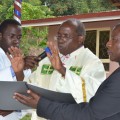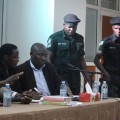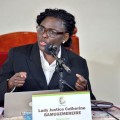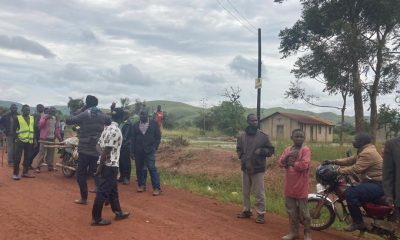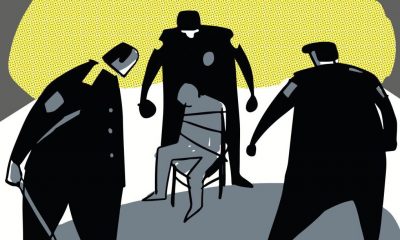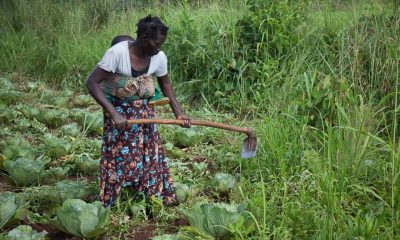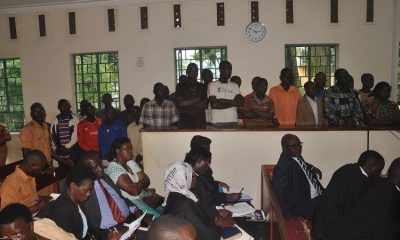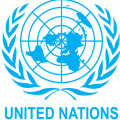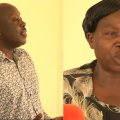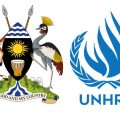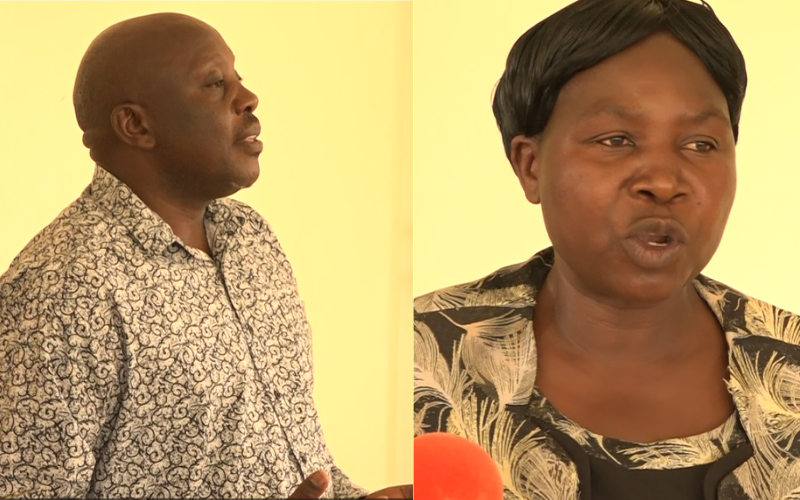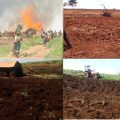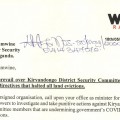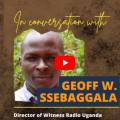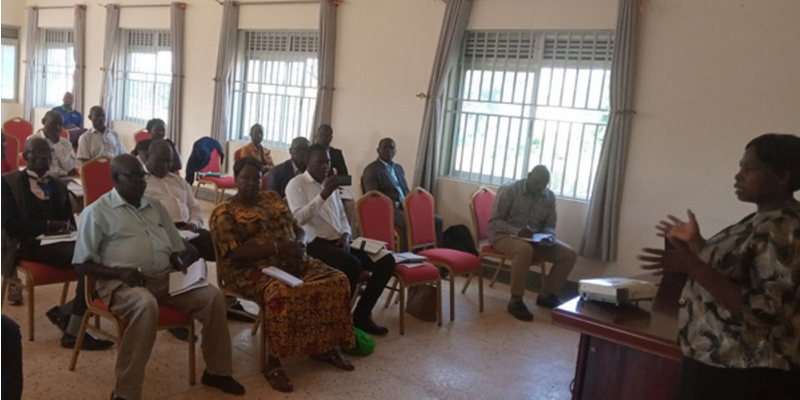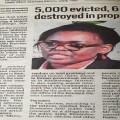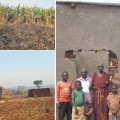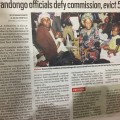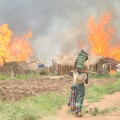By Witness Radio team.
Kiryandongo district leaders have embraced Witness Radio’s collaboration with the Kiryandongo district aimed at ending the rampant violent and illegal land evictions that have significantly harmed the livelihoods of the local communities in the area.
The warm welcome was made at the dialogue organized by Witness Radio Uganda, Uganda’s leading land and environmental rights watchdog at the Kiryandongo district headquarters, intended to reflect on the plight of land and environmental rights defenders, local and indigenous communities and the role of responsible land-based investments in protecting people and the planet.
Speaking at the high-level dialogue, that was participated in by technical officers, policy implementers, religious leaders, leaders of project affected persons (PAPs), politicians, media, Civil Society Organizations (CSOs), and development partners that support land and environment rights as well as the Land Based Investments (LBIs) Companies in the Kiryandongo district, the leaders led by the District Local Council 5 Chairperson, Ms. Edith Aliguma Adyeri appreciated the efforts taken by Witness Radio organization to organize the dialogue meeting aimed at bringing together stakeholders to safeguard community land and environmental rights in order address the escalating vice of land grabbing in the area.
During the dialogue, participants shared harrowing accounts of the impacts of land evictions and environmental degradation, including tragic deaths, families torn asunder, young girls forced into marriage, a surge in teenage pregnancies, limited access to education, and significant environmental damage which have profoundly affected the lives of the local population in Kiryandongo.
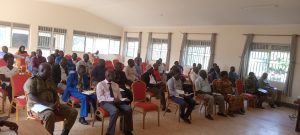
Participants attending the dialogue.
In recent years, Kiryandongo district has been embroiled in violent land evictions orchestrated to accommodate multinational large-scale agriculture plantations and wealthy individuals leaving the poor marginalized.
According to various reports, including findings from Witness Radio’s 2020 research Land Grabs at a Gun Point, the forceful land acquisitions in Kiryandongo have significantly impacted the livelihoods of local communities. It is estimated that nearly 40,000 individuals have been displaced from their land to make room for land-based investments in the Kiryandongo district. However, leaders in the district also revealed in the dialogue that women and children are affected most.
The Kiryandongo Deputy Resident District Commissioner, Mr. Jonathan Akweteireho, emphasized that all offices within the Kiryandongo district are actively involved in addressing the prevalent land conflicts. He also extended a welcome to Witness Radio, acknowledging their collaborative efforts in tackling and resolving land and environmental issues in the district.
“Ladies and gentlemen, we all know that the land rights together with environmental rights have been violated in our district, but because we don’t know what our rights are, because we have not directly done what we could to safeguard our rights and now this is the time that Witness Radio has brought us together to safeguard our rights. I want to welcome you in Kiryandongo and be rest assured that we shall give you all the necessary support to help us manage these rampant cases,” Ms. Adyeri said in her remarks during the dialogue meeting.
The team leader at Witness Radio Uganda, Mr. Geoffrey Wokulira Ssebaggala expressed gratitude to the participants for their active involvement in the dialogue and revealed that Witness Radio’s objective is to find a holistic solution to the escalating land disputes in Kiryandongo district serving as an example to other districts.
“We are here to assist Kiryandongo district in attaining peace and stability because it stands as a hotspot for land grabbers in Uganda. Mismanagement of land conflicts in Uganda could potentially lead to a significant internal conflict. Everywhere you turn, voices are lamenting the loss of their land and property. Kiryandongo, abundant with ranches, suffers from a lack of a structured framework, which amplifies these land conflicts. The influx of wealthy investors further complicates the situation,” Mr. Ssebaggala disclosed.
Within the dialogue, Mr. Ssebaggala emphasized the need for the Kiryandongo district council to pass a by-law aimed at curbing land evictions as an initial step in addressing the prevalent land injustices.
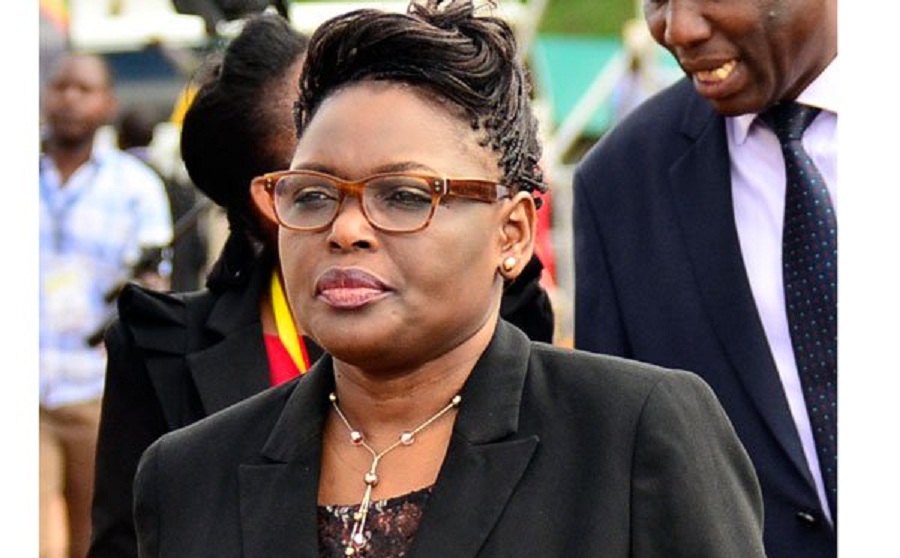
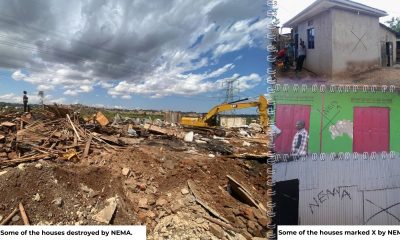
 MEDIA FOR CHANGE NETWORK5 days ago
MEDIA FOR CHANGE NETWORK5 days ago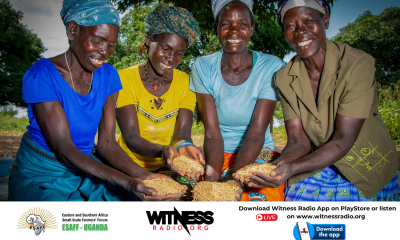
 FARM NEWS2 weeks ago
FARM NEWS2 weeks ago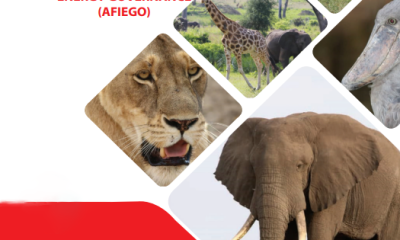
 MEDIA FOR CHANGE NETWORK2 days ago
MEDIA FOR CHANGE NETWORK2 days ago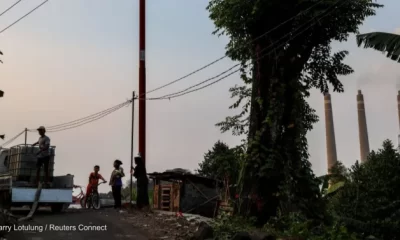
 NGO WORK1 week ago
NGO WORK1 week ago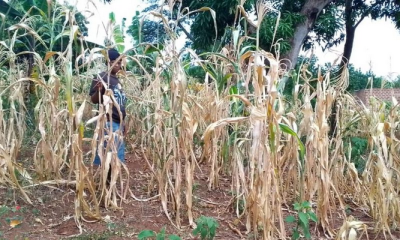
 FARM NEWS5 days ago
FARM NEWS5 days ago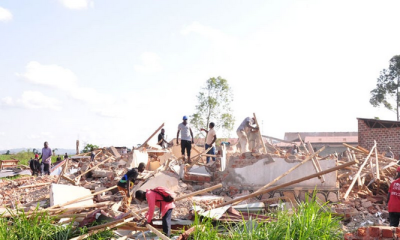
 MEDIA FOR CHANGE NETWORK5 days ago
MEDIA FOR CHANGE NETWORK5 days ago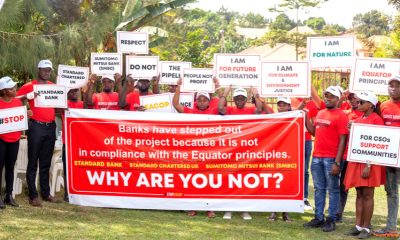
 MEDIA FOR CHANGE NETWORK3 days ago
MEDIA FOR CHANGE NETWORK3 days ago


